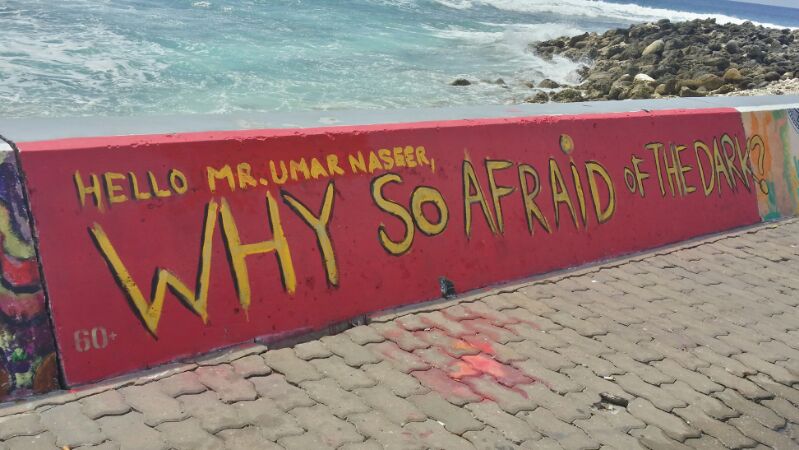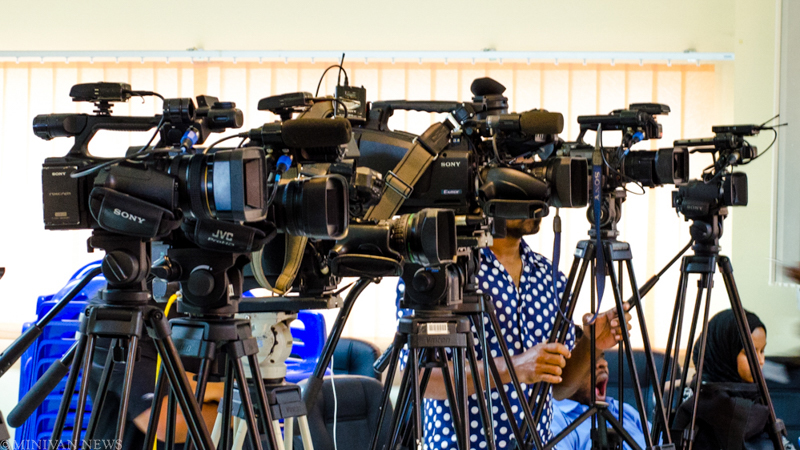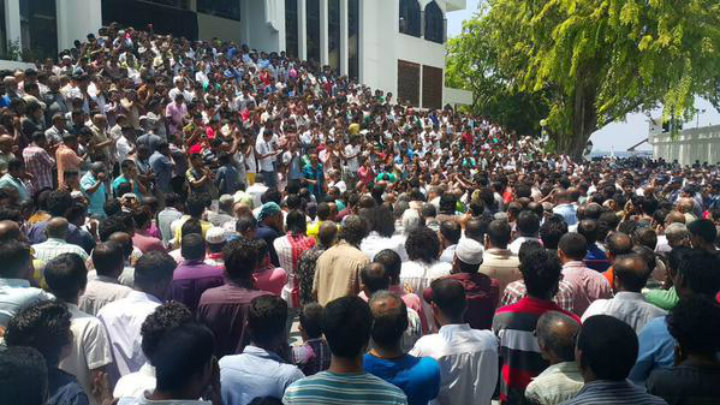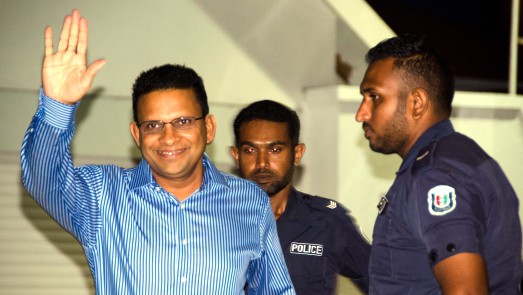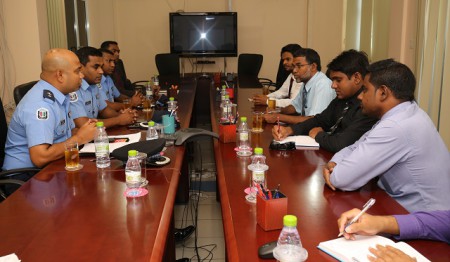The Ministry of Home Affairs today ordered residents of Malé City to keep their lights on during Earth Hour.
Expressing concern over a recent spike in violence in Malé, Home Ministry Spokesperson Thazmeel Abdul Samad said: “Switching off lights for this year’s Earth Hour is prohibited for the safety and security of Malé’s residents.”
Earth Hour, organized globally by the World Wide Fund for Nature, calls on citizens of the world to switch off their lights for one hour between 8:30 and 9:30 pm on the last Saturday in March as a symbol of commitment to the planet.
The Home Ministry also shut down a music show organized by the Scouts Association tonight, but said roads will be closed to traffic between 8 and 10 pm to celebrate Earth Hour.
The opposition Maldivian Democratic Party (MDP) has meanwhile called for a march in Malé during Earth Hour in support of imprisoned former President Mohamed Nasheed, globally known for his advocacy against climate change.
Political tensions have been high in Malé following Nasheed’s and former Defence Minister Mohamed Nazim’s imprisonment. Many have speculated the Home Ministry shut down the Earth Hour event due to Nasheed’s popularity within the environmental movement.
Environmental campaigner and musician Ahmed Shiham said he was disappointed that a global event had “become politicized due to the government’s unfortunate decision.”
“It’s not a crime to switch off,” he said.
By promoting Earth Hour, they think they might be promoting @MohamedNasheed – hence, the stay away from it
— Visham (@vichalhey) March 28, 2015
Home Ministry decided to celebrate earth hour w/lights on?! Joke of the century! #EarthHour #Maldives #FreeClimateHero #FreeMohamedNasheed — Rashu Meehaa (@rashumeehaa) March 28, 2015
Environmental group Ecocare Maldives has also urged Malé residents to continue with the Switch Off event.
“Despite the government’s disapproval on celebrating Earth Hour in Malé, Ecocare Maldives would like to call all organizations, institutions and corporations to switch off your lights and participate in the hour! Be part of the global movement from 20:30 to 21:30. We encourage all individuals to take part and use your power to change climate change,” the NGO said in a statement today.
Fathimath Thanzeela, an organizer with Save the Beach in Malé’s suburb Villingili, said the group had called off a bonfire, an acoustic music show and a fire dancing performance on the Home Ministry’s orders.
“It’s very disappointing when the situation in the country deteriorates to the extent we are unable to hold an event for the environment,” she said.
The opposition alliance has been protesting nightly since February 10, initially over President Abdulla Yameen’s alleged breach of the Constitution, and later over Nazim and Nasheed’s arrest and convictions.
The Economic Development Ministry last week ordered all shops and cafes to be shut down an hour earlier, 10 pm and 12 am respectively following the spate of street violence and arson attacks.
A 25-year-old migrant worker, Shaheen Mia, was stabbed to death on March 22. At least four expatriate workers were stabbed in the following days. On March 19, a fire at a warehouse in Malé spread to neighboring residences driving hundreds from their homes temporarily.
Meanwhile, two vehicles were torched in Malé on Thursday night. The police have not made any arrests in any of these incidences so far.
The police have threatened to crack down on nightly protests, claiming protesters were disrupting local businesses and inciting violence. The opposition has denounced the threat as an attempt to silence dissent.
